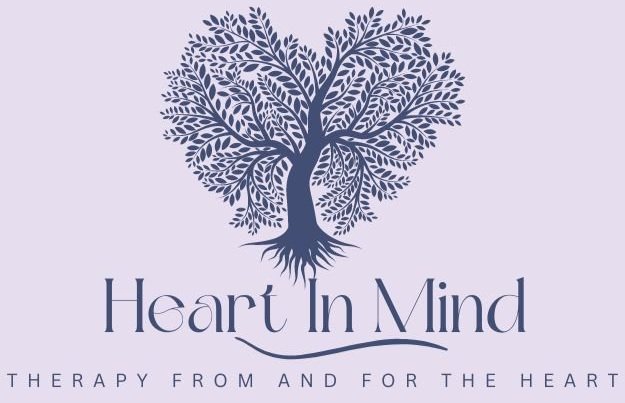Trauma and Cognitive Dissonance
“I can’t believe this happened!”
“How could I have let this happen?”
“Why didn’t I stop it?”
“Is it really that bad though?”
Questions like these are normal and make sense, following acute and chronic trauma*. They speak to our natural tendencies to seek answers to problems; they speak to our hope that with these answers, we can get closure and move forward from our trauma.
However, as shared in a previous blog post, things don’t always happen for a reason…they happen by chance, for many different reasons—- not just one, and reasons we might not know right now or ever.
I know this leaves a lot to be desired. As human-beings, one of the things solid answers can provide us is a sense of security through predictability. By having answers, we often feel a greater sense of security because we feel like we can better predict what’s more or less likely to happen and how our choices can affect that.
Towards that end, in this blog post, I want to share one major explanation for why we respond in the ways we do during and after traumatic experiences: the role of cognitive dissonance. Though we might not be able to answer why things happen the way the happen, we can answer the question of why we respond the ways we do based on research and people’s lived experiences.
I hope that in sharing this information, you can have one additional source of support in your healing journey and towards reconnecting back with your core self.
Cognitive dissonance refers to the discomfort we feel when our thoughts/beliefs don’t align with new information or our behavior. In response to this discomfort, we either change what we think/believe or we change how we behave.
When we endure trauma*, we’re often forced into circumstances that limit the choices we have. We’re forced into circumstances which erase possibilities in our life both in the present and the future. We become beholden to what another decides we can and cannot do; we become beholden to our automatic stress responses/instincts that involuntarily switch on to help us survive, in response to lacking true choice.
This is a common consequence of intergenerational trauma and relational trauma.
With intergenerational trauma, we might inadvertently adopt coping responses that were modeled and passed on to us by our families/ancestors who only survived severe poverty, racism, sexism, and other forms of overt and covert injustice by adopting such coping responses.
For example, following racial discrimination, our families/ancestors might have understandably adopted and then passed down hypervigilance for possible mistreatment. On a broader scale, we might start to believe what others tell us we are and act in ways that others expect us to. We try to align our beliefs with other’s assumptions of us and moreover, try to align our behaviors with these new, conditioned beliefs.
We necessarily sacrifice our true identities to cope with the pains of discrimination and other circumstances that are outside of our immediate control.
These coping responses speak to our attempts to reclaim control over a situation which has become out of our control. They speak to our attempts to reconcile the cognitive dissonance that can arise from the mismatch between how we’re perceived and what we know about our true selves.
Psychologists Dr. Thema Bryant Davis and Dr. Resmaa Menakem both spoke to this so well:
“When trauma has shaped you, try not to confuse who had to become with who you can be.”
- Dr. Thema Bryant Davis“Trauma decontextualized in a person looks like personality. Trauma decontextualized in a family looks like family traits. Trauma in a people looks like culture.”
- Dr. Resmaa Menakem
One of the biggest tragedies of trauma is that we risk losing touch with our truest, fullest self and subsequently, lose our ability to be present in our life and to make conscious choices that match what we truly want and need.
This risk of losing touch with our truest, fullest selves is also present in the face of relational trauma.
Survivors of relational trauma often internalize certain beliefs/thoughts about themselves in the face of acute and chronic trauma.* Doing so is our body and mind’s attempts to make the senseless presumably more sensible and controllable.
For example, if we were abused* as a child by our caregivers and couldn’t stop it, we might start to internalize beliefs that we deserved the abuse. It’s understandable that a child in such a situation will change their beliefs about themselves to “I deserve this” to match their behavior of “being unable to stop it” because children do not have the ability to fight back or run away from adults without being overcome by the adults’ abilities to fend off such attempts.
Likewise, if we are abused by our partner(s) or other loved ones as an adult, we might also start to internalize beliefs like, “I deserve this” and possibly, “I’m choosing to be abused.” This happens because again, the adult has learned from their ongoing experiences of abuse, that there’s nothing they can do to stop their abuser from continuing to abuse them. To address the incongruity between their thoughts, “I don’t deserve this. I deserve to be treated well” and their actions, “I didn’t stop it. I listened to what they told me to do and ended up getting hurt,” survivors of relational trauma are apt to change their beliefs about themselves to match their behaviors, such as, “I deserved to get hurt. Maybe some part of me chose/wanted this.”
The adoption of new beliefs that match our behaviors can help to quell discomfort and exhaustion that comes from continuously trying to resist/fight back with no changes in sight. This can be especially enticing when our nervous systems are already so exhausted from constantly anticipating and bracing ourselves for ongoing danger—which is the reality for survivors of intergenerational and relational trauma.
However disconcerting and confusing our trauma responses can be, these responses are normal, healthy, and make sense. They are reflective of our body and mind’s attempts to keep us alive when we were in active danger.
Such trauma responses can help survivors of relational trauma decrease or numb the pain that they’re feeling from being abused/neglected/otherwise hurt by their caregivers or other loved ones. In the face of abuse, our individual sense of identity and agency is often stripped away.
As a therapist who specializes in breaking the cycles of intergenerational and relational trauma among young adults, Asian Americans, and caregivers, I will support you in rekindling and strengthening all facets of your identities. Through this process of making space for all parts of you, we will also work together in bolstering your abilities and confidence to exercise your self-agency; to ensure that you’re making choices that align with what you need and want from your life now and in the future.
I hope this blog offers some more clarity about trauma responses that can often be perplexing.
You/we make sense.
~ Gina
*My use of the word, “abuse” is in reference to all forms of abuse including but not limited to: emotional, physical, financial, and sexual abuse.
*Acute trauma refers to a one-time experience that overwhelms your capacity to cope, given your internal and external resources at that given time. Chronic trauma refers to repeated exposure to experiences that overwhelm your capacity to cope, given your resources at a given time.
Sources:
https://www.medicalnewstoday.com/articles/trauma
https://medcircle.com/articles/types-of-trauma
https://www.webmd.com/mental-health/what-know-cognitive-dissonance
https://survivortreatment.com/why-cognitive-dissonance-is-so-traumatic
If you’re curious to learn more about my specialties and what it would be like to work with me, please check out the links below:


